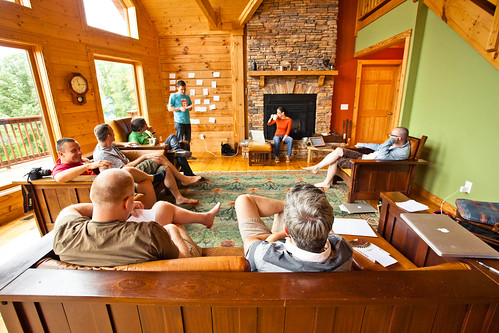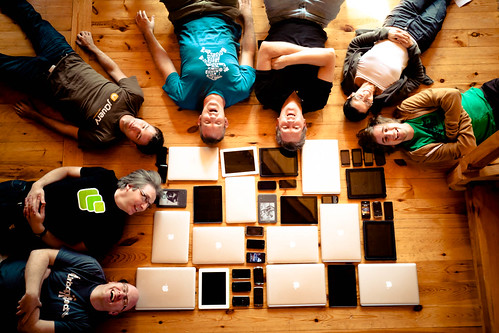I’m saddened to hear of Molly Holzschlag’s passing yesterday. Molly’s contributions to the web are innumerable. She more than earned her Fairy Godmother of the Web moniker.
But my memories of Molly are more personal. I didn’t get to spend much time with Molly, but the moments I did spend with her changed my life.
The first time I met Molly was at a WebVisions after party. I was an attendee. Molly was a rockstar.
Despite the difference, Molly treated me as a peer. She showed interest in and riffed on an idea I had. It was the first time I felt like I might have something interesting to contribute to the greater web. That conversation energized me.
The second time I met Molly was at Web 2.0 in San Francisco. I was still early in my speaking career. Molly remained a rockstar. She was the only other speaker I knew so I sought her out. I doubt she remembered me, but she welcomed me into her circle.
And her circle included several people who worked on browsers including on Internet Explorer during the tumultuous web standards period. For the first time, I heard insider accounts of the politics that defined web standards and whether or not a given company would adhere to those standards. This experience made me realize it was possible for individuals like me to contribute to web standards.
One story in particular stood out, but I fear I may get some of the details wrong. Much of the resistance from Microsoft when it came to web standards we due to one individual. That individual challenged Molly during one of the meetings that the Web Standards Project (WaSP) had with Microsoft. So Molly reached out to Bill Gates who had previously promised Molly and the rest of WaSP that Microsoft would cooperate.
The group laughed as they recalled this individual—the one who had blocked so much progress—had to step out to take a call from Bill Gates himself. They said they could hear Bill Gates yelling on the phone. Things changed after that day.
Think of all the time and effort lost dealing with Internet Explorer incompatibility mostly because of this one individual. One person can change the world, but not always for the better.
Molly is the counterpoint of course. She was one individual who made the world a significantly better place. Molly was a whirlwind that couldn’t be stopped and swept up all of those around her in it. We went along willingly.
My best memory of Molly is my most treasured. We skipped an afternoon of sessions at Web 2.0 and visited an art exhibit at the The Contemporary Jewish Museum. We talked about the web, her career, our shared love of challah, her family, and her extended web family. That afternoon remains one of my fondest memories from all of my conference experiences.
To this day, I can’t remember how or why we ended up at the museum. Why was I the lucky one who got to spend an unforgettable afternoon with the the Molly Holzschlag? I was no one significant. I barely knew her.
But that’s what made Molly amazing. She made everyone feel like they were someone. She touched my life and so many others.
Thank you Molly. You will be missed.

